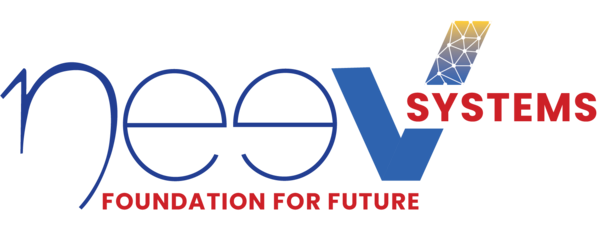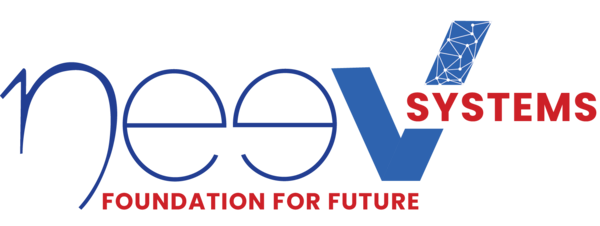In the fast-paced world of pharmaceuticals, where groundbreaking discoveries and innovative treatments are constantly being pursued, data is the lifeblood that fuels progress. However, the sheer volume and diversity of data generated from various sources pose significant challenges for pharma companies striving to harness its full potential.
This data is generated from disparate sources, including – Research and Development Projects, Clinical Trials, Manufacturing Processes, Electronic Health Records of Patients, Insurance Companies, Supply Chain Logistics, Sales and Marketing Activities, Healthcare Facilities, and more. This wealth of data holds the key to unlocking insights that can drive innovation, improve patient outcomes, and enhance operational efficiency.
In fact, according to reports, the total amount of new data created in 2025 is envisioned to reach 175 zettabytes. While pharmaceutical companies also contribute this vast amount of data, most of this data either sits idle or remains underutilized due to a lack of proper integration between data sources.
Therefore, a proper enterprise data integration solution that enables data interoperability and helps pharmaceutical companies to tackle data integration challenges is urgently needed. Before we discuss enterprise data integration in detail, let’s understand what data interoperability is and why it is needed in the pharma sector. We will also look at the various challenges that hamper data interoperability for pharma companies and explore enterprise data integration solutions to overcome these challenges.
Understanding Data Interoperability
Data interoperability refers to the ability of different systems, applications, or devices to exchange, interpret, and use data seamlessly and effectively. It enables diverse data sources to communicate with each other, regardless of differences in data formats, structures, or platforms. In other words, data interoperability ensures that disparate data systems can understand and work with each other’s data without encountering compatibility issues or barriers.
Why Pharma Sector Needs Data Interoperability
- Facilitate Research: Pharmaceutical companies rely on vast amounts of data from diverse sources such as genomics, clinical trials, and scientific literature for drug discovery and development. Data interoperability allows researchers to integrate and analyze these disparate datasets efficiently, enabling insights that drive innovation in pharmaceuticals.
- Enable Clinical Trials: Clinical trials involve collecting data from multiple sites, healthcare providers, and electronic health record (EHR) systems. Data interoperability ensures that patient data can be exchanged seamlessly between these disparate systems, facilitating the recruitment, monitoring, and analysis of trial participants while adhering to regulatory requirements.
- Ensure Regulatory Compliance: Regulatory agencies impose strict requirements for data exchange, reporting, and documentation in the pharmaceutical industry. Data interoperability ensures compliance with regulations such as the FDA’s electronic submission standards and the European Medicines Agency’s data transparency initiatives, enabling pharmaceutical companies to navigate regulatory hurdles effectively.
- Support Personalized Medicine: Personalized medicine relies on analyzing patient data to tailor treatments to individual characteristics such as genetics, biomarkers, and lifestyle factors. Data interoperability enables the integration of diverse patient data sources, including electronic health records, genetic profiles, and wearable device data, to support personalized treatment approaches and optimize patient outcomes.
- Enhance Supply Chain Efficiency: The pharmaceutical supply chain involves complex processes, including sourcing raw materials, manufacturing drugs, and distributing products to healthcare providers and patients. Data interoperability enables seamless integration of data across the supply chain, improving visibility, traceability, and efficiency in inventory management, production planning, and distribution logistics.
- Improve Patient Care: Interoperable health information systems facilitate the exchange of patient health records, medication histories, and treatment plans between healthcare providers, pharmacies, and other stakeholders. This seamless exchange of information supports coordinated care delivery, reduces medical errors, and improves patient safety and outcomes in the pharmaceutical sector.

Unlock the Power of Data Interoperability
Addressing Pharma’s Data Interoperability Challenges with Enterprise Data Integration
Data interoperability challenges refer to the difficulties encountered when attempting to seamlessly exchange and utilize data across different systems, platforms, or organizations. These challenges can arise due to various factors, including incompatible data formats, disparate data sources, data silos, and differing data standards or protocols. Here are some common data interoperability challenges faced by pharma companies that can be tackled by implementing enterprise data integration solutions.
Challenge – Fragmented Data Sources
Pharmaceutical companies collect data from various sources such as clinical trials, research and development (R&D), manufacturing processes, supply chain logistics, sales, and patient records. Integrating data from these disparate sources, each with its own formats and standards poses a significant challenge. This slows down the research process, limiting the ability to identify new drug targets or develop innovative therapies. Without a comprehensive view of data, R&D teams may struggle to allocate resources effectively, leading to wasted time and money on less promising research avenues.
Solution – Unified Data Platform
Pharmaceutical companies must adopt data integration strategies that involve creating a unified data platform that aggregates, cleanses, and harmonizes data from disparate sources. By implementing Extract, Transform, Load (ETL) processes, pharmaceutical companies can consolidate data from clinical trials, R&D, manufacturing, and other sources into a single, centralized repository. This allows for a unified view of data across the company, enabling better and faster research, drug development, and informed decision-making and analysis.
Challenge – Regulatory Compliance
The pharmaceutical industry is subject to stringent regulatory requirements, including Good Manufacturing Practices (GMP), Good Clinical Practice (GCP), and regulatory submissions to agencies like the FDA and EMA. Ensuring data interoperability while maintaining compliance with these regulations can be complex and requires careful data integrity and security management. Failure to comply with regulatory requirements can lead to regulatory fines, penalties, and potential suspension or withdrawal of product approvals. Compliance-related challenges also result in delays in product approval and launches and affect a pharmaceutical company’s reputation and trust with its customers.
Solution – Data Governance Framework
A robust data governance framework ensures compliance with regulatory requirements while enabling data interoperability. Data integration platforms can enforce data quality standards, audit trails, and access controls to maintain data integrity and security. Additionally, metadata management capabilities help track data lineage and demonstrate compliance with regulatory mandates. This ensures a better quality of data, which results in effective research and drug development, allows informed decision-making, and ultimately builds the company’s reputation.
Data Security and Privacy
Pharmaceutical companies deal with sensitive patient information, proprietary research data, and intellectual property. Ensuring data security and privacy while enabling interoperability is crucial to protecting against data breaches, unauthorized access, and compliance violations. Failure to do so can result in loss of confidentiality, potential threats to patient privacy, production interruptions due to cyber attacks, loss of customer trust, fines, penalties, reputational damage, and more.
Solution – Encryption and Access Controls
Data integration platforms employ encryption techniques and access controls to safeguard sensitive information. Role-based access controls restrict access to authorized personnel, while encryption techniques such as Secure Sockets Layer (SSL) and Transport Layer Security (TLS) protect data during transmission. Additionally, anonymization and pseudonymization techniques help anonymize patient data to maintain privacy. Stringent data privacy and access control leads to the security of confidential data, prevents cyber attacks, saves companies from reputational damage and legal penalties.
Legacy Systems and Siloed Data
Many pharmaceutical companies still rely on legacy systems and siloed databases, which hinder interoperability and data sharing. Integrating data from these disparate systems while ensuring data integrity and consistency is a significant challenge. This significantly affects research and development, delays clinical trials, and requires higher maintenance costs for legacy systems.
Solution – Integration Middleware
Integration middleware acts as a bridge between legacy systems and modern applications, enabling seamless data exchange. Pharmaceutical companies can integrate data from legacy systems with newer platforms by implementing Application Programming Interfaces (APIs) and middleware solutions. This eliminates data silos and enables real-time data access across the organization, enabling unified view and access to data and informed decision-making across departments of pharma companies.
Data Standardization
The lack of standardized data formats and terminology across different systems and departments complicates data integration efforts. Harmonizing data standards and vocabularies is essential to enable seamless data exchange and interpretation.
Solution – Data Mapping and Transformation
Data integration platforms facilitate data mapping and transformation to standardize data formats and terminologies. Using tools such as data dictionaries and master data management (MDM), pharmaceutical companies can map disparate data elements to a common schema. This ensures consistency and interoperability across different systems and departments.
Cross-functional Collaboration
Collaboration between different functions within pharmaceutical companies, such as R&D, manufacturing, regulatory affairs, and sales, is essential for success. Data interoperability challenges can hinder cross-functional collaboration by limiting access to relevant data and insights.
Solution – Collaborative Data Platforms
Collaborative data platforms facilitate cross-functional collaboration by providing a centralized repository for data sharing and analysis. Pharmaceutical companies can foster teamwork and knowledge sharing across different departments and functions by implementing collaborative features such as shared workspaces, version control, and collaborative analytics tools.
Scalability and Flexibility
Pharmaceutical companies deal with large volumes of data that continue to grow exponentially. Ensuring scalability and flexibility in data interoperability solutions to accommodate increasing data volumes, new data sources, and evolving business needs is essential.
Solution – Cloud-based Data Integration
Cloud-based data integration solutions offer scalability and flexibility to handle growing data volumes and evolving business needs. By leveraging cloud infrastructure and services, pharmaceutical companies can scale their data integration capabilities on-demand and adapt to changing requirements. Additionally, cloud-based platforms offer built-in resilience and disaster recovery capabilities, ensuring business continuity and data availability.
Lack of Knowledge
Another significant challenge hindering data interoperability is a lack of knowledge. Many pharma companies may not fully understand the importance of interoperability or lack the expertise to implement practical solutions. This lack of knowledge can hinder progress and prevent companies from realizing the full potential of their data assets.
Solution – Partner with Experts
To address this challenge, pharmaceutical companies can invest in education and training initiatives to increase awareness and build internal expertise in data interoperability. Additionally, partnering with external experts or consulting firms can provide valuable insights and guidance in implementing robust data integration strategies tailored to the pharmaceutical industry’s needs.
The Pressing Need To Address Data Interoperability Challenges in Pharma
Addressing data interoperability challenges in the pharmaceutical industry has become imperative in today’s evolving landscape. The complexity of data is on the rise, driven by technological advances, changing patient expectations, and regulatory reforms. The COVID-19 pandemic has further highlighted the need for agility and resilience in pharmaceutical supply chain and operations. Failure to tackle these challenges can result in severe consequences for pharmaceutical companies’ C-suites.
Some potential outcomes are lower productivity, reduced effectiveness, decreased patient outcomes, slower drug discovery, increased risk exposure, and higher costs. Moreover, the lack of data interoperability can impede cross-functional collaboration, hinder innovation, and lead to less effective products/drugs/medicines. Nonstandardized data formats and poor data security practices further exacerbate the risks, exposing sensitive information to breaches. Manual data processing and maintenance of multiple systems add to the expenses, making robust data management and integration solutions crucial for the pharmaceutical industry’s success.
Unleash The Full Potential Of Your Pharmaceutical Data with Neev Systems Enterprise Integration Solutions
At Neev Systems, we offer customized Enterprise Integration Solutions. We are your trusted partner specializing in MuleSoft, Oracle Integration Services, Dell Boomi, and SnapLogic for seamless integration solutions tailored specifically for the pharmaceutical industry.
Our strategic implementation and advisory services ensure smooth integration between applications in your IT stack, delivering real-time and consistent data views across systems and applications. With industry-leading integration platforms and best practices, our skilled experts design, implement, and manage customized solutions to unlock the full potential of your pharmaceutical data. Experience enhanced efficiency, unified data access, faster time-to-market, scalability, flexibility, improved collaboration, and streamlined enterprise integrations with Neev Systems.
Recently, we helped a leading precision oncology company – Guardant Health tackle challenges with their kit tracking process with our enterprise integration solution. Our EIS solution helped them achieve:
- Reduced overnight shipping costs by $450k/year.
- Decreased incidents of lost/misplaced kits through proactive monitoring.
- Minimized order cancellations to less than 1% by ensuring clients used non-expired kits.
- Reduced the manual reporting hours the supply chain team required from 28 hours/week to just 5 hours/week, allowing for more productive use of their time.

Streamline Data, Accelerate Innovation

Ansar Syed
With 10+ years of experience as an integration architect, Ansar specializes in delivering complex business solutions through strategic planning, custom designs, and process automation. He collaborates closely with stakeholders to enable seamless business processes and exceptional outcomes using integration tools.


